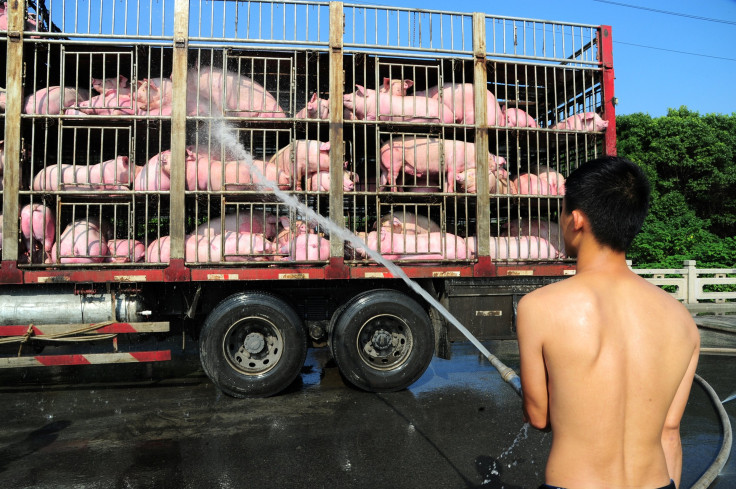Are Pigs Optimists Or Pessimists? Personality, Mood Decide

Pigs are more than just a source for delicious meat; they have innate personalities and moods that are affected by their living conditions, and further, they can even be categorized as optimists or pessimists. Research has shown that porcines, just like humans, form judgments by “incorporating aspects of stable personality traits and more transient mood states.”
Published Wednesday in the journal Biology Letters, the study is titled “Mood and personality interact to determine cognitive biases in pigs” and it tests “the hypothesis that mood and personality interact to influence cognitive bias in the domestic pig.”
For that purpose, 36 pigs (24 males and 12 females) were divided into two groups and housed in one of two set-ups that were known to affect their moods. Both the housing environments were similar but the more comfortable digs had deeper straw and larger space. The animals’ personalities were ranked as proactive or reactive based on how they approached novel items placed in front of them. Optimistic pigs were found to approach new objects more often, while the pessimistic ones were more cautious. After testing, 27 (17 male, 10 female) of the 36 pigs were used for the study.
But the difference between the two groups really came out in another test that involved bowls containing either chocolate sweets or coffee beans, both coated with sugar to mask their smell. The bowls were kept in opposite corners of a room and the pigs were habituated to their locations. But when the locations were changed, swine from more comfortable living conditions were seen to approach the bowl with sweets even when it was placed in the middle of the room, or even close to the bowl with coffee beans. On the contrary, pigs from the shabbier housing were reluctant to investigate the bowl with sweets if it was not in its usual corner.
Conducted by researchers from the University of Lincoln in the United Kingdom, the study concludes: “Personality and mood jointly influencing an individual’s behavior allows longer-term consistency with shorter-term flexibility for responses to dynamic conditions.”
Remarkably similar to how we humans work, as co-author Lisa Collins said: “These results suggest that judgment in non-human animals is similar to humans, incorporating aspects of stable personality traits and more transient mood states.”
However, the study raises another question: Do optimistic pigs make for tastier bacon?
© Copyright IBTimes 2024. All rights reserved.





















